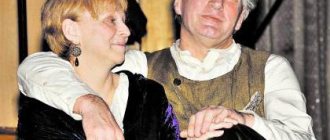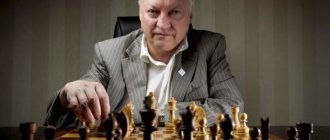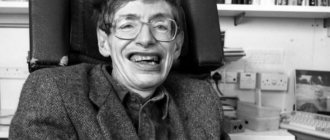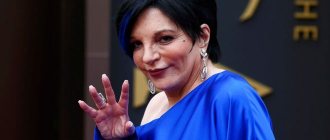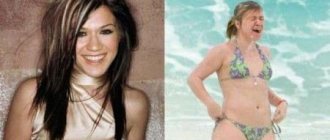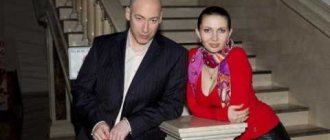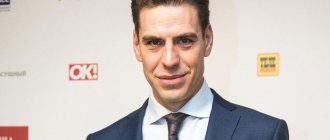Dmitry Abzalov's wife is Irina Pleshcheva, head of the Main Directorate of Social Communications in the Moscow Region. The politician is well known to the public as the president of the Center for Strategic Communications and a political scientist. Often appears in top programs, gives an objective assessment of the political situation in the country and its interaction with other powers.
There are no children in the family, since both spouses are completely focused on their political careers, until they are going to temporarily interrupt their work experience and change priorities.
Dmitry does not advertise his political life and does not maintain pages on social networks.
Born on February 21, 1984 in Moscow, his nationality is Russian, but with Kazakh roots on his father’s side. The family raised three children; Dmitry has a brother, Konstantin, and a sister, Irina.
Abzalov studied well at school and made plans for a successful career. I lost my father early. The man was found dead in his own apartment. The details of this dark case are not advertised; an investigation was carried out for some time. After school, Abzalov entered one of the prestigious universities in Moscow and studied at the Faculty of Law. Upon graduation, I took up political science seriously.
Education
Dmitry studied in Moscow and graduated with honors from experimental school No. 1314. He was more given to the humanities, but none of the teachers could have thought that in the future he would become a professional political scientist. Abzalov studied at one of the capital's universities. Which one exactly is not specified. One thing is known that he received a decent higher education, and even his opponents often admired his erudition and analytical mindset on air.
Dmitry Abzalov, biography, personal life
A young, but already familiar to many politician, who often appears as an expert on many political shows on different channels, inspires trust with his literacy, passionate confidence in his rightness and excellent reaction to his opponent.
It is impossible not to pay attention to this young charismatic man.
Dmitry Abzalov. Photo from open source: siberiaplay.ru
He is a Muscovite, he is 35 years old, born in 1984 into an intelligent family. He was raised with his brother Konstantin and sister Irina, his mother, a beautiful and smart woman, Olga Braga, a Muscovite, and an oriental male father, Gambit Abzalov, whose nationality is definitely unknown, perhaps half-Uzbek, half-Tatar.
Parents graduated from Russian Chemical Technical University named after. Mendeleev.
Abzalov family. Photo from open source: family-showbiz.ru
Dmitry, just like his brother and sister, after graduating from Moscow experimental school No. 1314, received higher education and already have their own families.
Abzalov family. Photo from open source: kak2z.ru
Not long ago, Dmitry’s father died. Mom is 65 years old.
Dmitry has been married since 2012 to Irina Pleshcheva . She is 3 years younger than him. They are a great couple.
Dmitry Abzalov and Irina Pleshcheva in the registry office. Photo from open source: showbiz-life.ru
Born in a village in the Voronezh region, Irina had an active lifestyle since childhood. She began her career as a very young journalist in the Voronezh region, studied a lot and always moved forward. Today she is already a member of the Public Chamber, head of the Main Directorate of Social Communications of the Moscow Region.
Irina Pleshcheva. Photo from open source: riamo.ru
Dmitry, as an ambitious and purposeful person, also easily developed and occupied high positions in large organizations.
In 2013, Dmitry became a leading consultant on the country’s internal development, published on the websites of well-known media, and began to be invited to TV.
Dmitry is an active patriot and that makes me happy.
Today Abzalov heads the Center for Strategic Communications and works as an expert in the analytical department of the Center for Political Conjuncture of the Russian Federation. He analyzes the domestic and foreign policies of the Russian Federation, assesses the political, social and economic situation in the country, political analysis of the market, makes forecasts and understands the relationships of other countries.
I think Dmitry has good prospects , because in addition to literacy, confidence in his knowledge, courage in expressing his point of view, positive popularity, he knows how to speak frankly with people and even with opponents, he is polite and tolerant. Dmitry is not afraid to make predictions. They come true.
Fresh forecast. A month ago, Dmitry Abzalov believed that Poroshenko would not be able to retain the presidential post, although he would try very hard. A change of president in Ukraine will further aggravate the already difficult economic and political situation in Ukraine. Let's see.
Both Dmitry and Irina are Russian youth, whom both society and the country’s government hope for as a promising future.
Dmitry Abzalov - political scientist
Today, his political career is going well, he holds the post of president of the Center for Strategic Communications, and is an expert in the center of the political situation in Russia in the analytical department. Its task: to analyze Russia’s relations with other countries, to predict the long-term nature of certain international projects and agreements for the development of the domestic economy.
Abzalov has high ratings in the political sphere. They not only listen to him, but regularly invite him to top programs. Abzalov's innovative ideas are well known in the presidential office. At the same time, the politician acts within the framework of his inherent patriotism and the law.
Career
After graduating from university, Abzalov devoted himself entirely to political science. And such qualities as efficiency, energy, ambition and determination allowed me to quickly climb the career ladder.
Today, Dmitry not only heads the Center for Strategic Communications, but also holds the post of expert at the Center for Political Conjuncture of the Russian Federation (analytical department).
In his reviews, he touches on topics that are of interest to all segments of the population and find a warm response.
- Building Russia’s relations with international partners in trade, issues of regulating the country’s economic growth.
- The political situation in the world and the place of Russia.
- What are the opportunities and real actions related to the implementation of projects in the field of economics - internal and external strategy, lobbying for key projects.
- Questions about the settlement of relations between Russia and Ukraine. Considering the dynamics of Ukraine's development as a power that has taken a course in a new direction, Dmitry does not forget to justify his position with facts about the corruption component, debts, the state of the armed forces and the growth of the national currency.
Dmitry Abzalov and the media
The 35-year-old political observer and commentator always knows what to answer to his opponent, is very well read and is a truly strong and worthy expert in the political field.
Interviews and recordings of conversations can be seen on Russian television channels:
- Russia 1;
- First;
- RBC;
- Russia Today.
Shows with a political bent also often invite Dmitry. For example, he can be seen in television programs: “60 Minutes”, “Time Will Tell”, “Meeting Place”.
If you prefer to listen to news, then join the radio stations Vesti FM, Svoboda, and Govorit Moskva.
For press lovers, you can get acquainted with Abzalov’s political views in such publications.
- "Economy"
- "Work"
- "Sight"
- "Gazeta.ru"
- "Gudok.ru"
- "Polit.ru"
- "New News"
- "RBC Daily"
- "Forbes"
- "Expert"
- "Finance"
- "Russian newsweek"
Abzalov Dmitry Gabitovich: personal life
The political scientist does not talk about his personal life. It is reliably known that in 2013 he married the ambitious journalist Irina Pleshcheva. The woman is so passionate about moving up the career ladder that she is in no hurry to add to her young family.
Irina Pleshcheva - Abzalov's wife
By profession, Dmitry’s wife is a certified journalist. She began building her career in Voronezh, and worked for several years at the Youth Media Development Center. Thanks to her ambitions and sociability, the girl transferred to Moscow, where she met her future husband.
Today she is the chairman of the main department of social communications for the Moscow region, and is a full member of the Public Chamber.
Political scientist Dmitry Abzalov: Kazakhstan is changing its power structure
— Nazarbayev announced his resignation from the post of president to the Security Council. What does it mean?
— The structure of power in Kazakhstan is changing. The Security Council is strengthening its powers. Since last year. Security issues go to the Security Council from the president. Before that, it was a presidential republic with a strong position of the president. Below him is the Cabinet of Ministers, the head of which Nazarbayev recently replaced. Then the Senate and the lower house of parliament. What are the features? In our country, in case of replacement, the president is followed by the prime minister, then the speaker of the Senate. In Kazakhstan, the head of the Senate follows the president. And then the prime minister. The appointment of the speaker of parliament as acting president is connected with this. And Nazarbayev retained his leadership in the ruling party, which has a majority in parliament - and therefore the opportunity to influence the formation of the government. That is, with the strengthening of the Security Council, there is a simultaneous transition to a parliamentary model. In this configuration, the president is mostly concerned with foreign policy issues; he will not be able to intercept the army, and he will not seriously get involved in socio-political issues.
x HTML code
The President of Kazakhstan resigned. Nursultan Nazarbayev resigned. He led Kazakhstan for almost 30 years. This is a record for being in power among post-Soviet countries
- Why Tokayev? Are there other options for who will be the successor?
— The succession scheme has been discussed there since 2014. Including because of his age. There were two long-lived political leaders in the post-Soviet space - in Tajikistan, Belarus and Kazakhstan. In Kazakhstan, a clan component is imposed. But Nazarbayev distanced himself from the southern clans. I tried to maintain equidistance. And now, while making a transition of power, he retains real control. The most gentle person was chosen as a successor. Tokayev has been in politics for a long time, came to it from diplomacy, is not closely connected with clans (he himself is from the south), does not actively promote his own, and his international relations are not bad. He is considered to be close to China (he worked there for many years), and has good relations with Moscow and Washington. He is one of the architects of the so-called multi-vector policy of Kazakhstan. But he promoted the interests of China especially actively. Tokayev was chosen precisely because he is now not associated with groups, although at a time when Nazarbayev’s eldest daughter Dariga and her husband were strong, Tokayev was one of the so-called power four. But lately he has distanced himself. As for the main resonant topic today, it is completely in Nazrabaev’s wake. These are its main advantages - equidistance, not biased by nepotism, international fame and authority. What is needed to ensure continuity.
— Should we wait for the early presidential elections and will Tokayev become the main candidate there?
— It is important that continuity be carried out during the period of living Nazarbayev. Early elections will be called. Most likely this year. Dariga Nazarbayeva is in a bathhouse; she is unlikely to aspire to the highest post. Karim Masimov was recently appointed to a key post in the government; he is unlikely to run for the presidency. If they apply, it will be through one person, through the speaker. Nazarbayev has many players next to him. He is forced to look for a new configuration. If, God forbid, something happens to him, it will be a serious blow to the entire system he has built.
— Will China’s position strengthen there and Russia’s position weaken?
— China is very interested in Kazakhstan. Invests in the development of the Silk Road. For them, this is the shortest transit route. The Chinese have opened one of the largest ports in the Caspian Sea. Build infrastructure. For China, Kazakhstan is a hub, an entrance to our customs union, to our market. The PRC purchases raw materials from Kazakhstan.
The Americans are also increasing pressure there. They actually froze Kazakhstan's gold and foreign exchange reserves and unblocked them only after Nazarbayev's visit to Washington. Therefore, the struggle for a successor scheme is also taking place with the participation of external players. The Americans' trump card is Astana's foreign resources. China is pressing for investment. Cheap Chinese money. Our trump card is sales markets and the defense component.
OPINION
No one's ally, no one's enemy
Dmitry STESHIN
Three weeks ago, KP correspondents Dmitry Steshin and Viktor Huseynov returned from a ten-day expedition to Kazakhstan. And this is what they saw there (details)
The Long Arm of Help from Washington
President of the Center for Strategic Communications Dmitry Abzalov talks about the principles by which the United States selects recipients for its “humanitarian” programs.
“This week, programs for the “socialization of refugees” in Ukraine became known. Funding from the United States Agency for International Development (USAID) will be allocated to support and employ representatives of the DPR and LPR who voluntarily left the self-proclaimed republics.
USAID has long been active in developing humanitarian projects in Africa and Southeast Asia. But why did the Agency suddenly decide to help Ukraine? Why is humanitarian funding dangerous? And what does fuel and energy complex have to do with it?
USAID specializes in supporting U.S. foreign policy partners. At the same time, most capital-intensive initiatives are of a political nature: funds from the fund were used to “torpedo” all of Washington’s opponents.
After achieving political goals, interest in countries and projects decreased. According to an Associated Press study, in Cuba, USAID financed the creation of the pro-American microblog network ZunZuneo.
Most of the NGOs that participated in the Arab Spring were also supported by USAID - the April 6 Movement, the Bahrain Center for Human Rights and others.
The example of the latter is indicative. After the restoration of relations between Washington and Bahrain (the fifth fleet of the US Navy is stationed here), the Agency stopped funding the arrested head of the Center for Human Rights, Nabil Rajab.
A similar situation occurred with Libya. In the Libyan conflict, it was USAID, on behalf of Barack Obama, that chartered ships for the removal and return of refugees to this country.
The amount of support provided by the Agency exceeded $47 million. Of the total volume, more than 70% of the cargo went to the territory controlled by the opposition Libyan National Transitional Council (LNC). And the control center for humanitarian operations was deployed in the center of resistance to the “Gaddafi regime” - in Benghazi. Moreover, $10 million in financial support for local NGOs was determined by members of the LNPS.
By the way, after the completion of the military operation and the overthrow of the “Libyan colonel,” USAID support decreased by orders of magnitude. And this despite the fact that a fierce civil war continues in the country.
In Ukraine, the organization managed to clearly demonstrate itself within the framework of domestic politics during the 2014 presidential elections, allocating more than $11 million to finance the campaign.
Then, through the regional private equity fund Western NIS Enterprise Fund (WNISEF), USAID directed amounts of $30 million to turn around foreign trade. The funding will be used to search for new markets, educational programs and preferential loans.
Moreover, if you carefully read the strategic documents and the memorandum signed by USAID and the Ministry of Economy of Ukraine, it is planned to develop foreign trade in the opposite direction from the Russian Federation. Financial support will be provided for entering the EU, Middle East and Southeast Asian markets.
And this is just the beginning. According to the US budget, the State Department and USAID will receive a consolidated $117 million to provide political, economic and military support to Ukraine.
Another $51 million will go to two Eastern Partnership countries to “strengthen information security and protection” from the external influence of the Russian Federation.
No one disputes that USAID performs an important humanitarian function. But instead of constantly moderating the objectionable behavior of other countries, isn’t it easier to form independent governments capable of sharing responsibility for their own citizens, rather than working in a system of eternal controlled chaos, of which the entire Ukrainian people will be hostage.”
Current activities
Abazov actively appears on television and radio stations, gives interviews and expert comments to printed publications.
The main direction of his research is the analysis of the domestic economic policy of the Russian Federation, as well as relations with the world's largest economies (USA, Germany, China), neighbors (Ukraine, Belarus) and NATO countries.
In 2020, the expert analyzes mainly the situation in Syria and Ukraine, assessing the possibility of resolving military conflicts.
Dmitry gives objective political forecasts, which often turn out to be accurate. High professionalism and competence allowed Abzalov to achieve success in the field of political science and earn the trust of citizens, so it is possible that in the future he will prove himself to be a successful politician.
Politicization of the IT space: an expert commented on the blocking of Ramzan Kadyrov’s account
The Facebook page of the head of Chechnya, Ramzan Kadyrov, was deactivated due to US sanctions. This was reported by the press service of the social network.
Representatives of the platform noted that they were obliged to block Kadyrov’s page due to his inclusion in the “list of US Specially Designated Nationals,” which included him due to alleged human rights violations in the republic.
Ramzan Kadyrov himself said that he was abandoning this social network and switching to another one - Mylistory, which looks exactly like the old version of Instagram, but in a different color scheme.
Kadyrov’s Instagram and Facebook accounts stopped working on December 23. The head of the republic himself commented on this: “They can block pages on social networks, but never the name of Ramzan Kadyrov. Neither they nor their owners."
Source: pixabay.com/PD
The President of the Center for Strategic Communications, Dmitry Gabitovich Abzalov, shares Kadyrov’s point of view. According to the expert, unfortunately, this is a common practice recently.
“There are no legal grounds for this. The sanctions list, which was also presented, does not have any legal basis. From the point of view of common sense, this is a very dubious list and statements about some violations are imaginary.”
It is worth recalling that Facebook has recently introduced a news verification system, which is also a complete utopia from a technological point of view. The content generated in this segment is so large, and each of them can be perceived as quasi-political, that its number will be physically impossible to verify. Abzalov is confident that verification will require production capacity exceeding the number of people on the planet.
The expert believes that the problem lies in who owns the company.
“This social network is located in the American market and it is more important to Facebook management in terms of profitability. In other words, the major player did not quarrel with the legislative bodies and, roughly speaking, allowed them to make themselves an instrument of Western propaganda.
And in the USA there was not, is not, and will not be an open Internet. Like in China, which built an information wall. Europe is also moving towards this,” says PE’s interlocutor.
It is worth saying that the selectivity with which the IT segment approaches blocking accounts is quite specific and indicates a certain politicization of the Internet space, the expert concluded.
Want more news on the topic? Click and subscribe to our publication in Yandex.
Biography
Dmitry Abzalov is a political scientist, known as the president of the Center for Strategic Communications. The columnist gained recognition through his participation in popular television projects related to the discussion of the political situation in the country and the world. Taking a patriotic position, Abzalov supports the initiatives of Russian President Vladimir Putin and gives clear forecasts regarding the course of certain political events. Today you can hear the expert’s opinion in the programs of Channel One and Rossiya. He shares his own point of view with the audience of RBC and Russia Today.




